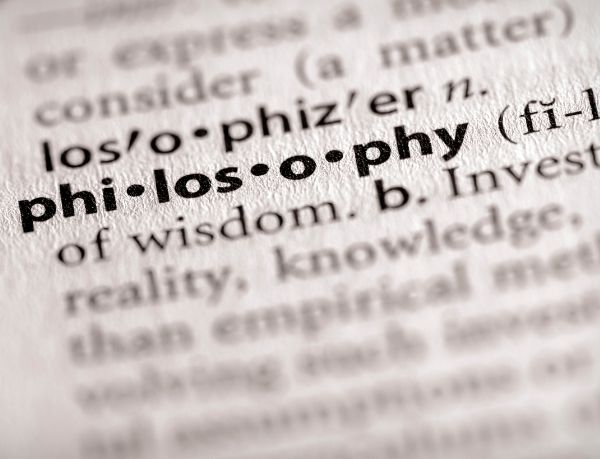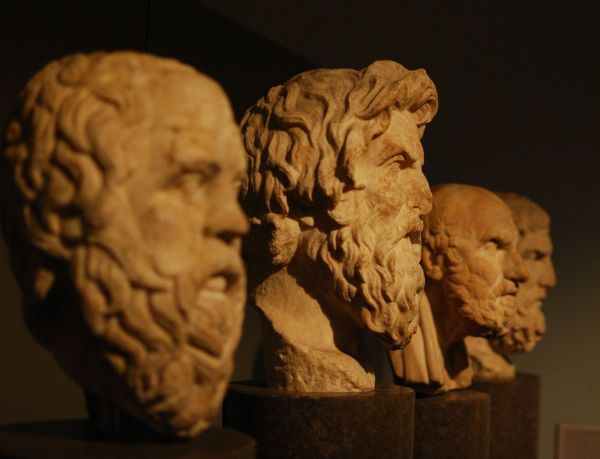Are you a fan of the more serious side of Joe Rogan? He might be a sometimes controversial comedian, but Joe likes to think about stuff too. This is one of the reasons that the Joe Rogan podcast has become so popular: long-form discussions about the significant issues of the day.
When it comes to topics that Joe likes to cover, there is a wide range of things. However, they boil down to a few key issues: gender, alternative lifestyles, health supplements, corruption in politics, conspiracy theories, and atheism.

The episodes that we list in this article will cover quite a range of topics: the usefulness of alcohol, academic corruption, mental parasites, and the history of race in America. This is a great place to discuss issues because it’s all very conversational and Joe makes some dense subjects very easy to understand.
So what are the best podcasts that you can find for philosophy in the Joe Rogan library? Which philosophers does Joe talk to, and what topics do they discuss?
Which episode on philosophy would be best to introduce someone to the world of Joe Rogan? Is there accompanying literature that you can pick up concerning what the guests are talking about?
Well, if you fancy chewing over some big topics with Joe for a few hours, then you should read on. We have the top philosophy episodes that you can find in Joe’s healthy catalog. We’ll give you a brief synopsis of the episode and the topics discussed.
So roll up your sleeves, brew some coffee or tea and get ready to get your gums around some serious thinking.
Table of Contents
Episode #1191 – Peter Boghossian and James Lindsey
This first episode is with the philosophers, although they do not discuss philosophy per se, instead discussing the corruption and insularity involved with academic literature. These two philosophers have submitted fake nonsensical papers to universities to get them published as doctorates and theses.
This is a rather jokey episode that goes in hard against the academic establishment. They played a prank by submitting bogus papers to universities on gender performativity and dog mating to see whether they would get published. And, much to Joe’s amusement, they did!
Although the topic starts from a light-hearted place, it soon gets more serious, discussing censorship in academia and people getting fired for bogus reasons.
These two professors have spent most of their professional careers working in academia and have become disillusioned with what they regard as the more extreme aspects of campus culture.
Episode #1325 – Dr. Cornel West
This episode is a discussion with Dr. Cornel West, professor emeritus at Princeton University. They start light-hearted, discussing Richard Pryor and their mutual love for edgy stand-up comedy.
They then get into systems of thought in human society, such as metaphysics and socialism, and how they are fundamentally fractured and broken.
Joe and Dr. West then talk about democratic socialism and the problems that are inherent within it. Dr. West proposes that socialism should be looked at through the prism of democracy and should be used to help protect the poor working classes against oppression from the government and capital.

They then get into racism and the importance of excellence in sports. They talk about social mobility in sports and how black men in the 60s and 70s became symbols of liberty. Dr. West also discusses great black idols from that era and the current racial climate in America as it stood in 2020.
The podcast ends with a gentle discussion of Brazilian hip-hop, with Joe recommending that he listen to some. Dr. West discusses how the arts can lift the human spirit, and no matter how bad things can get, there is always someone to crack a joke and the importance of comedy.
Episode #1350 – Nick Bostrum
This next episode is about artificial intelligence, with Joe starting straight away by asking the Swedish philosopher Nick Bostrum if we are on the verge of being replaced by robots.
If you have ever raised questions about artificial intelligence being capable of taking over from us, then this is the episode for you.
The episode talks about how artificial intelligence and technological innovation will both enhance and oppress human life. Bostrum talks about embryos and how you can run genetic tests to determine the best attributes for your future child.
As with many of Joe Rogan’s episodes, the subject soon moves onto extraterrestrials. If you love the idea of little green men floating around in the universe, then you should skip to around the 60-minute mark of this episode.
Bostrum determines that space will probably be colonized by robotic innovation rather than ‘meat sacks in ships.’
The episode wraps up with the idea of innovation and how simulation influences our concept of reality. This episode is particularly dense in philosophy, and even Joe is not making that many jokes in this episode. If we were rating this one in terms of difficulty, we would label it a head-scratcher.
Episode #1653 – Andy Norman
Now we’re moving onto one of the newer Joe Rogan episodes, with an episode that is broadcast straight from the Coronavirus pandemic. However, Joe starts the podcast by talking about extraterrestrials and how they relate to the parasites in our bodies.
This whole episode focuses on the book ‘Mental Immunity’ by Andy Newman, which talks about a radical new concept: ‘mind parasites.’
A mind parasite is a notion that bad ideas can harm the individual. Concepts such as false information could be regarded as mind parasites in that they can damage the individual and get them to do something dangerous. One example they draw is voodoo and how convincing someone that they are cursed can alter their physical being.

Inevitably the term ‘conspiracy theory’ soon comes up, and whether people who believe in this stuff would be considered as people infected by these mind parasites.
Joe is surprisingly open to discrediting some of the conspiracy theories that he has believed and the more extreme examples of the conspiracy genre, such as Qanon.
This is an excellent episode for picking through the misinformation running rampant on the internet and causing events such as the Capitol Hill riots.
The episode ends with a serious discussion about responsibility and motivating yourself outside of work.
Episode #1663 – Edward Slingerland
This episode discusses something that we all have experienced, either directly or indirectly, being drunk. It starts with Edward Slingerland talking about his study of early Chinese philosophy and the issue of trying not to try, which a lot of Chinese philosophers attempted to rectify a few hundred years ago.
He then talks about the idea of alcohol as a method of turning off the front of your brain to enhance the spontaneity of your life. Joe and Edward soon crack out the Buffalo Trace and discuss the history of alcohol consumption and how booze used to be weaker hundreds of years ago.
Joe and Edward then talk about the front part of your brain turning off when you are subjected to large amounts of stress over a long period. The discussion moves onto the frontal cortex of the brain and how this part can stress you out. Drinking is a useful technique that helps human beings loosen up healthily.
Episode #1208 – Jordan Peterson
Now we move on to a very controversial person in Western thought – Jordan Peterson. An early interview with Dr. Peterson contributed to his fame, and now he has returned, and there is some mutual respect and affection between the two men.
Very quickly, they get into cancel culture and moral responsibility. Dr. Peterson discusses resentment and how you should try hard not to become resentful in your life, leading to moral degeneration.
He talks about his enthusiasm for his work and enjoys meeting with other people when he is on tour.
He and Joe then discuss the point of competition in sports and how it is essential for the development of children. Dr. Peterson draws on his background as a clinical psychologist to discuss the distinction between cooperation and competition and why it is crucial to separate the two.
The end of the podcast talks about activism, how Joe and Jordan Peterson are very skeptical of left-leaning activists, and how they present themselves as more morally virtuous than others.
This gets into a discussion of moral imperfection and how personal improvement is a private and complicated process.